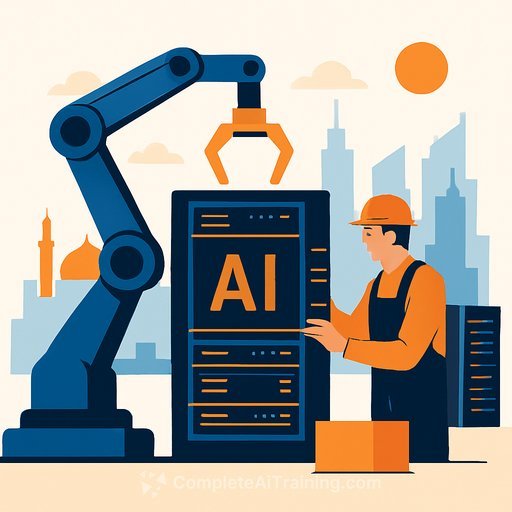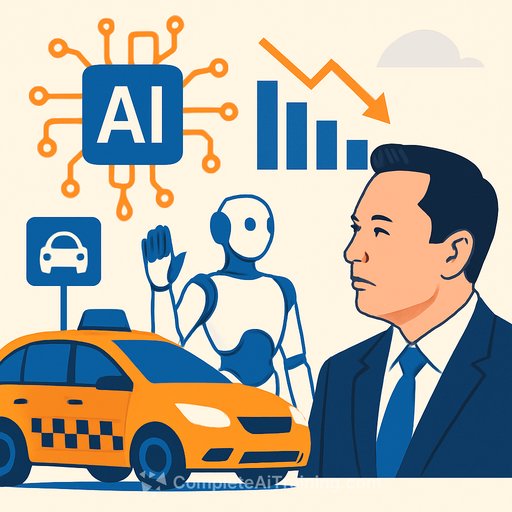Guangdong's AI Manufacturing Play: What Executives Should Do Next
Guangdong, China's industrial core, has rolled out a three-year plan to embed AI across manufacturing and court global investors. The province is signaling two things at once: self-reliant tech infrastructure and open doors for international partnerships.
Officials outlined moves to scale AI in factories, push robotics innovation, and raise the Greater Bay Area's profile as a top-tier business hub. The message is clear-production lines, supply chains, and R&D are being rewired for AI-first operations.
What's New
- AI embedded across industrial operations: quality inspection, predictive maintenance, scheduling, and supply planning.
- Robotics acceleration: heavy-duty robotics research and localized production of key components via Midea's Lyceem Lab.
- Computing and models: advances from Huawei's Ascend processors and Tencent's Hunyuan models are "providing fresh impetus for the transformation and upgrading of the manufacturing sector."
- Regional positioning: the Guangdong-Hong Kong-Macau Greater Bay Area is being framed as a magnet for foreign investment and joint ventures.
Why This Matters for Executives and Strategy Leaders
- Cost and throughput: AI on the line moves from pilots to plant-wide deployment-expect tighter yields, faster changeovers, and fewer defects.
- Vendor dependence: local compute (Ascend) plus domestic foundation models (Hunyuan) reduce exposure to export controls while creating a parallel stack you may need to support.
- Supply resilience: localization of robotics components can shorten lead times and reduce single-point failures in your automation program.
- Market entry: the Greater Bay Area offers a unified play for manufacturing, logistics, and capital-use it for pilots or as a regional scaling base.
Where to Look First
- Compute and models: assess fit and ecosystem maturity around Huawei's Ascend stack here.
- Regional platform: review policies, infrastructure, and incentives for the Guangdong-Hong Kong-Macau Greater Bay Area here.
90-Day Action Checklist
- Map top three factory use cases by ROI: visual inspection, predictive maintenance, and scheduling. Define target metrics (OEE, FPY, MTBF, yield).
- Run a controlled pilot in a Guangdong or Greater Bay Area facility; measure cycle time impact and scrap reduction against a clear baseline.
- Build a dual-stack vendor shortlist: local (Ascend/Hunyuan) and global providers. Test interoperability, TCO, and serviceability on your floor.
- Stand up a data pipeline for traceability: collection at the edge, labeling standards, and model feedback loops tied to quality gates.
- Scope robotics upgrades with Midea's ecosystem in mind: heavy-duty arms, grippers, and localized spares to reduce downtime risk.
- Run a risk review: export controls, data residency, IP protection, and joint-venture governance. Pre-negotiate model and data ownership.
Signals to Watch
- Provincial incentives for AI retrofits and robotics adoption.
- Supplier localization milestones for key robotic actuators, sensors, and controllers.
- Model performance benchmarks for Hunyuan in manufacturing workflows (inspection accuracy, latency, service levels).
- Interoperability frameworks between local stacks and your existing MES, SCADA, and QMS.
Bottom Line
Guangdong is moving to make AI-native manufacturing the default. If China is core to your supply base or growth plan, build a dual-stack strategy, pilot fast, and lock in data and IP terms before you scale.
If you're building internal capability for AI in operations, you can review role-based learning tracks here.
Your membership also unlocks:






